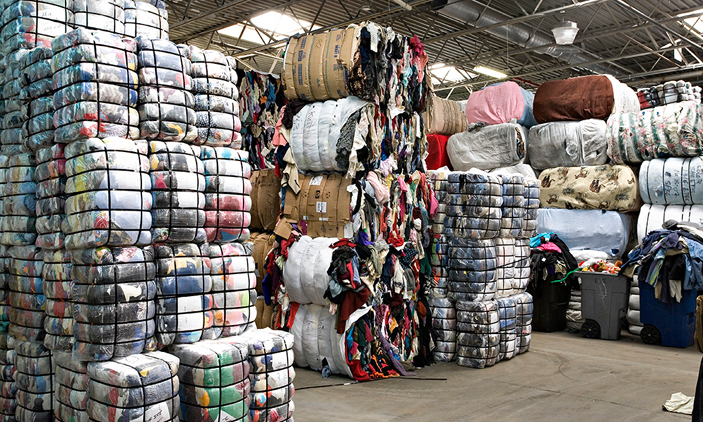
Chagua vs. AGOA: Rwanda’s Second Hand Clothes and Shoes Trade Standoff with the US and the Battle for Economic Sovereignty

Rwanda ended up being banned from a trade deal with the US called AGOA – for raising tariffs to discourage and eventually remove import second hand clothes in 2016! Three other countries that had banned second hand clothes – Kenya, Uganda and Tanzania – backed down and accepted second hand clothes but Rwanda has maintained the integrity of its people by refusing second hand clothes.
The sad part is US individuals and trade associations are advocating for more second hand clothes to come to Africa to keep their business and employment up, while destroying textile industries, businesses and jobs in Africa. The Americans think this is fair.
ASWDNet
East Africa Community (EAC) uses about 39 billion Kenyan shillings a year on purchasing second hand clothes from Western countries. The major challenge with this is the killing of local textile industries, leading to continued poverty.
See Mitumba theory
In recent years, Rwanda has found itself at the center of a heated trade dispute with the United States over its decision to restrict the importation of second-hand clothes, locally known as chagua. This move sparked a clash over trade policies, particularly concerning the African Growth and Opportunity Act (AGOA), a crucial trade agreement between the US and qualifying African nations.
Under AGOA, participating countries are granted duty-free access to American markets for certain goods. However, Rwanda’s stance on second-hand clothes threatened its eligibility for these benefits, prompting the US to threaten suspension under AGOA.
At the heart of Rwanda’s decision lies a complex interplay between economic development and cultural values. The government argued that the influx of second-hand clothes was detrimental to its domestic textile industry and overall economic growth. This stance is deeply rooted in Rwandan culture, particularly the concept of ubumuntu, which emphasizes human dignity and welfare.
Moreover, Rwanda’s position reflects a broader struggle faced by many developing nations – balancing the promotion of local industries, known as imihigo, with the demands and pressures of international trade agreements.
While the dispute highlighted tensions between sovereignty and trade obligations, Rwanda remained steadfast in its commitment to prioritize the development of its domestic industries, even in the face of potential repercussions.
Implications for Social Work and Development
For social workers and development practitioners, the difference between Rwanda and the US underscores the importance of understanding the interplay of economic policies, cultural values, and international trade dynamics in guiding development pathways.
Social workers operating in Rwanda and similar contexts must acknowledge the cultural significance attached to economic decisions and advocate for policies that align with local priorities, such as supporting domestic industries to foster sustainable development.
Furthermore, the dispute emphasizes the need for social workers to engage in policy advocacy at both local and international levels. By advocating for policies that promote economic sovereignty and empower local communities, social workers can contribute to more equitable and sustainable development outcomes.
Roles of Social Workers in Western Nations
- Advocate for fair trade policies that prioritize economic sovereignty and cultural values in developing nations like Rwanda.
- Support sustainable development projects in Rwanda through collaboration with local and international organizations.
- Raise awareness about the socio-economic impacts of trade policies on developing countries and promote equitable trade agreements.
- Empower marginalized communities in Rwanda, including women, youth, and rural populations, to participate in economic activities and decision-making processes.
- Collaborate with academic institutions and research organizations to conduct studies on the socio-economic impacts of trade policies and support evidence-based advocacy and policy recommendations.
Potential Research Questions
- How do cultural values, such as ubumuntu, influence Rwanda’s economic policies, particularly regarding trade agreements like AGOA?
- What are the socio-economic impacts of Rwanda’s chagua policy on the local textile industry and overall economic development?
- How effective are social work practices in advocating for policies that prioritize economic sovereignty and support domestic industries in Rwanda and similar contexts?
- What are the ethical considerations involved in balancing economic interests and cultural preservation in international trade negotiations, as demonstrated in Rwanda’s trade dispute with the US?
- How can alternative strategies for economic development, such as import substitution policies, be implemented effectively in Rwanda and other developing economies facing similar trade challenges?
Ultimately, the Rwanda-US trade standoff serves as a compelling case study for social work and development practitioners, highlighting the importance of contextual understanding, policy advocacy, and the pursuit of development goals that prioritize the well-being of local communities. Rwanda may have lost the US market, but it has grown to be the best destination in Africa.
Use the form below to subscibe to Owia Bulletin.
Discover more from Africa Social Work & Development Network | Mtandao waKazi zaJamii naMaendeleo waAfrika
Subscribe to get the latest posts sent to your email.




You must be logged in to post a comment.